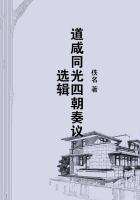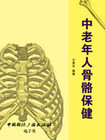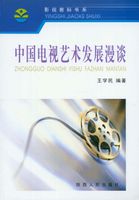A sin is not only a transgression of a law,but also any contempt of the legislator.For such contempt is a breach of all his laws at once,and therefore may consist,not only in the commission of a fact,or in the speaking of words by the laws forbidden,or in the omission of what the law commandeth,but also in the intention or purpose to transgress.For the purpose to break the law is some degree of contempt of him to whom it belonged to see it executed.To be delighted in the imagination only of being possessed of another man's goods,servants,or wife,without any intention to take them from him by force or fraud,is no breach of the law,that saith,"Thou shalt not covet":nor is the pleasure a man may have in imagining or dreaming of the death of him from whose life he expecteth nothing but damage and displeasure,a sin;but the resolving to put some act in execution that tendeth thereto.For to be pleased in the fiction of that which would please a man if it were real is a passion so adherent to the nature both of man and every other living creature,as to make it a sin were to make sin of being a man.Th consideration of this has made me think them too severe,both to themselves and others,that maintain that the first motions of the mind,though checked with the fear of God,be sins.But I confess it is safer to err on that hand than on the other.
A crime is a sin consisting in the committing by deed or word of that which the law forbiddeth,or the omission of what it hath commanded.So that every crime is a sin;but not every sin a crime.To intend to steal or kill is a sin,though it never appear in word or fact:for God that seeth the thought of man can lay it to his charge:but till it appear by something done,or said,by which the intention may be argued by a human judge,it hath not the name of crime:which distinction the Greeks observed in the word amartema and egklema or aitia;whereof the former (which is translated sin)signifieth any swerving from the law whatsoever;but the two latter (which are translated crime)signify that sin only whereof one man may accuse another.But of intentions,which never appear by any outward act,there is no place for human accusation.In like manner the Latins by peccatum,which is sin,signify all manner of deviation from the law;but by crimen (which word they derive from cerno,which signifies to perceive)they mean only such sins as may be made appear before a judge,and therefore are not mere intentions.
From this relation of sin to the law,and of crime to the civil law,may be inferred,first,that where law ceaseth,sin ceaseth.But because the law of nature is eternal,violation of covenants,ingratitude,arrogance,and all facts contrary to any moral virtue can never cease to be sin.Secondly,that the civil law ceasing,crimes cease:for there being no other law remaining but that of nature,there is no place for accusation;every man being his own judge,and accused only by his own conscience,and cleared by the uprightness of his own intention.When therefore his intention is right,his fact is no sin;if otherwise,his fact is sin,but not crime.Thirdly,that when the sovereign power ceaseth,crime also ceaseth:for where there is no such power,there is no protection to be had from the law;and therefore every one may protect himself by his own power:for no man in the institution of sovereign power can be supposed to give away the right of preserving his own body,for the safety whereof all sovereignty was ordained.But this is to be understood only of those that have not themselves contributed to the taking away of the power that protected them:for that was a crime from the beginning.
The source of every crime is some defect of the understanding,or some error in reasoning,or some sudden force of the passions.
Defect in the understanding is ignorance;in reasoning,erroneous opinion.Again,ignorance is of three sorts;of the law,and of the sovereign,and of the penalty.Ignorance of the law of nature excuseth no man,because every man that hath attained to the use of reason is supposed to know he ought not to do to another what he would not have done to himself.Therefore into what place soever a man shall come,if he do anything contrary to that law,it is a crime.If a man come from the Indies hither,and persuade men here to receive a new religion,or teach them anything that tendeth to disobedience of the laws of this country,though he be never so well persuaded of the truth of what he teacheth,he commits a crime,and may be justly punished for the same,not only because his doctrine is false,but also because he does that which he would not approve in another;namely,that coming from hence,he should endeavour to alter the religion there.But ignorance of the civil law shall excuse a man in a strange country till it be declared to him,because till then no civil law is binding.
In the like manner,if the civil law of a man's own country be not so sufficiently declared as he may know it if he will;nor the action against the law of nature;the ignorance is a good excuse:in other cases ignorance of the civil law excuseth not.
Ignorance of the sovereign power the place of a man's ordinary residence excuseth him not,because he ought to take notice of the power by which he hath been protected there.
Ignorance of the penalty,where the law is declared,excuseth no man:for in breaking the law,which without a fear of penalty to follow were not a law,but vain words,he undergoeth the penalty,though he know not what it is;because whosoever voluntarily doth any action,accepteth all the known consequences of it;but punishment is a known consequence of the violation of the laws in every Commonwealth;which punishment,if it be determined already by the law,he is subject to that;if not,then is he subject to arbitrary punishment.For it is reason that he which does injury,without other limitation than that of his own will,should suffer punishment without other limitation than that of his will whose law is thereby violated.















